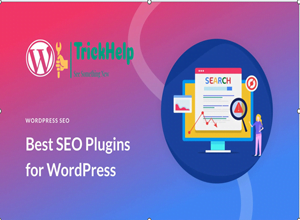Are you searching for the ultimate SEO solution to enhance your WordPress website’s performance on search engines? Look no further! In this comprehensive blog post, we will dive deep into the world of SEO plugins for WordPress and help you choose the best one that caters to your requirements. By the end, you’ll be equipped with the knowledge to optimize your website effectively and drive more organic traffic to your online presence.
Understanding the Importance of SEO for WordPress Websites
Before we delve into the details of the best SEO plugins for WordPress, let’s take a moment to understand why SEO is crucial for the success of your website. SEO, or Search Engine Optimization, is the process of optimizing your website to rank higher in search engine results pages (SERPs). When your website appears higher in search results, it increases the visibility, credibility, and organic traffic to your website.
WordPress, being one of the most popular content management systems, powers millions of websites worldwide. While it offers many built-in features for efficient SEO, using a dedicated SEO plugin can elevate your website’s optimization efforts to new heights. These plugins simplify the optimization process, provide valuable insights, and guide you at every step to make data-driven decisions.
What is a WordPress SEO Plugin?
A WordPress SEO plugin is a powerful tool that extends the functionality of your WordPress website by offering a wide range of features and capabilities to optimize your content for search engines. These plugins provide a user-friendly interface, allowing both beginners and experienced users to easily navigate through various optimization aspects.
By integrating a robust SEO plugin into your WordPress website, you can control and manage several aspects of SEO, including keyword analysis, on-page optimization, meta tags, XML sitemaps, social media integration, and more. These plugins eliminate the need for manual coding and tedious optimization tasks, enabling you to focus on creating high-quality content that resonates with your audience.
Choosing the Best SEO Plugin for WordPress
With numerous SEO plugins available for WordPress, choosing the right one can feel overwhelming. However, by considering a few key factors, you can narrow down your options and find the perfect fit for your website. Here are some crucial aspects to consider when selecting an SEO plugin:
- Ease of Use: Look for a plugin with an intuitive interface that simplifies the optimization process and requires minimal technical expertise.
- Comprehensive Features: Ensure the plugin offers a wide range of features to cover various aspects of SEO, such as keyword analysis, on-page optimization, metadata management, and more.
- Performance and Speed: Optimize for a plugin that doesn’t slow down your website and ensures efficient performance for a seamless user experience.
- Regular Updates and Support: Choose a plugin that receives regular updates and provides reliable customer support to address any issues or queries that may arise.
- Positive User Feedback: Read user reviews and ratings to gauge the reliability and effectiveness of the plugin. Pay attention to feedback regarding customer satisfaction and plugin performance.
Examining Key Features and Functionality
Now that you understand the importance of an SEO plugin and what to look for when choosing one, let’s explore the key features and functionalities that the best SEO plugins for WordPress offer. By understanding these features, you can make an informed decision based on your website’s specific needs. Let’s dive in!
Easy On-Page Optimization
One of the core functionalities of an SEO plugin is its ability to optimize your on-page content effortlessly. The plugin should provide a user-friendly interface to help you optimize meta tags, headings, and structured data. It should also offer recommendations and suggestions to improve your content’s readability, keyword usage, and overall SEO score.
Advanced Keyword Analysis
A robust SEO plugin should empower you with comprehensive keyword analysis tools. It should allow you to explore keyword suggestions, search volume, and competition analysis. The plugin should also offer insights into long-tail keywords, which can help you target more specific and less competitive search queries.
Comprehensive SEO Audit Reports
Regularly auditing your website’s SEO performance is crucial for identifying areas that need improvement. Look for an SEO plugin that provides detailed audit reports, highlighting issues like broken links, duplicate content, missing meta tags, and other potential SEO pitfalls. These reports serve as a roadmap for optimizing your website effectively.
XML Sitemaps and Robots.txt Management
Efficiently managing XML sitemaps and robots.txt files is essential for search engine crawlers to understand and index your website’s content better. The SEO plugin you choose should offer easy management of XML sitemaps, allowing you to customize the inclusion and exclusion of specific pages and resources.
Social Media Integration and Sharing
In today’s interconnected world, social media plays a vital role in driving traffic and increasing your website’s visibility. Look for an SEO plugin that seamlessly integrates with various social media platforms, allowing you to easily share and optimize your content for maximum social engagement.
Rich Snippets and Schema Markup Support
Rich snippets and schema markup provide additional context and enhance the visibility of your website’s content in search engine results. An ideal SEO plugin should offer support for rich snippets, allowing you to add structured data markup effortlessly. By presenting search engines with structured data, you increase the chances of appearing as an enhanced listing in search results.
With these essential features in mind, let’s explore the top SEO plugins for WordPress that align with these criteria.
Exploring the Top SEO Plugins for WordPress
When it comes to WordPress SEO plugins, several contenders dominate the market. Let’s take a closer look at the best options available, their unique features, and how they can elevate your SEO game.
1 Yoast SEO
Yoast SEO is a widely popular and feature-rich SEO plugin for WordPress. It offers a user-friendly dashboard that allows you to optimize your content seamlessly. Yoast SEO provides a comprehensive analysis of your content’s readability, focus keywords, and meta tags. It also generates XML sitemaps and ensures your social media sharing is optimized. With Yoast SEO, you have a powerhouse tool at your disposal for improving your website’s search engine rankings.
2 All in One SEO Pack
All in One SEO Pack is another top contender in the SEO plugin realm. It offers an easy-to-use interface with robust features and capabilities. With All in One SEO Pack, you can optimize your on-page content, generate XML sitemaps, and manage meta tags effortlessly. It also provides integration options for various social media platforms, ensuring your content reaches a wider audience.
3 Rank Math
Rank Math is a relatively newer entrant in the SEO plugin market but has quickly gained popularity among WordPress users. This powerful plugin offers advanced features, including keyword analysis, content optimization suggestions, and XML sitemap generation. Rank Math also offers a seamless transition from other SEO plugins, making it a compelling choice for those looking to switch.
4 SEOPress
SEOPress is a comprehensive SEO plugin that caters to both beginners and experienced SEO professionals. It offers a wide range of features, including content analysis, XML sitemaps, social media integration, and rich snippets. SEOPress also provides seamless integration with Google Analytics, ensuring you have access to valuable data to make informed decisions.
5 The SEO Framework
The SEO Framework is a lightweight SEO plugin that focuses on simplicity and performance. It offers an intuitive interface with essential features such as on-page optimization, XML sitemaps, and Open Graph metadata. The SEO Framework is an excellent choice for users who prefer a streamlined plugin with all the necessary functionality needed for effective SEO.
By evaluating these leading SEO plugins, you can select the one that aligns perfectly with your website’s specific needs and goals.
Step-by-Step Guide: Installing and Configuring the Best SEO Plugin for WordPress
Now that you know the key features of the best SEO plugins and have explored the top contenders, let’s dive into a step-by-step guide for installing and configuring the best SEO plugin for your WordPress website.
Installation Process
To get started, follow these simple steps to install the plugin of your choice:
- Log in to your WordPress admin panel.
- Navigate to the “Plugins” section.
- Click on “Add New.”
- In the search bar, enter the name of the SEO plugin you have selected.
- Click on the “Install Now” button next to the desired plugin.
- Once the installation is complete, click on the “Activate” button.
Initial Configuration and Setup
After activating the SEO plugin, you will typically be guided through an initial configuration process. This allows you to set up basic settings and preferences specific to your website. Follow the prompts provided by the plugin to complete the initial setup.
Optimizing On-Page Content
Once the initial setup is complete, it’s time to optimize your on-page content. This involves targeting keywords, optimizing meta tags, and enhancing the readability of your content. Here’s how you can do it:
- Start by identifying the primary keyword for each page or post on your website.
- Incorporate the primary keyword naturally within the page or post’s title and ensure it appears within the first 100-150 words of your content.
- Utilize subheadings (H2, H3, etc.) to structure your content and incorporate related keywords where relevant.
- Optimize meta tags, including the meta title and meta description, using your primary and related keywords.
- Aim for a reasonable keyword density, ensuring the keywords appear naturally throughout the content without overstuffing.
Fine-Tuning Permalinks and Metadata
Optimizing permalinks and metadata is crucial for your website’s SEO. Follow these steps to fine-tune permalinks and metadata using your chosen SEO plugin:
- Navigate to the plugin’s settings page.
- Update your permalink structure to include relevant keywords and ensure they are concise, descriptive, and human-readable.
- Configure metadata settings, such as meta titles and descriptions, to align with your on-page content and target keywords.
Integrating Social Media Platforms
To optimize your content for social media platforms, you’ll want to integrate your website with the desired platforms. Follow these steps to seamlessly integrate social media with your SEO plugin:
- Access the social media integration settings in your chosen SEO plugin.
- Connect your website to your desired social media platforms, such as Facebook, Twitter, and LinkedIn.
- Customize the appearance and content that gets shared when your website’s content is shared on social media.
Enabling XML Sitemaps
XML sitemaps are essential for search engines to discover and crawl your website effectively. Here’s how you can enable XML sitemaps using your SEO plugin:
- Navigate to the XML sitemap settings within your SEO plugin.
- Enable the XML sitemap functionality if it isn’t already enabled.
- Customize the inclusion and exclusion settings to ensure search engines can efficiently crawl and index your website’s content.
Advanced Settings and Customizations
Most SEO plugins offer advanced settings and customization options to fine-tune your website’s SEO. Explore these settings to optimize your website further, but make sure to read the documentation or reach out to support if you’re unsure about any specific configurations.
Frequently Asked Questions (FAQs) about SEO Plugins for WordPress
In this section, we will cover some frequently asked questions to help you gain a better understanding of SEO plugins for WordPress:
- Q: Can I use multiple SEO plugins on my WordPress website?
- A: It is generally not recommended to use multiple SEO plugins simultaneously as they can conflict with each other, resulting in unexpected behavior or issues. Choose one comprehensive SEO plugin that aligns with your needs and utilizes its full potential.
- Q: How do SEO plugins help improve my website’s ranking on search engines?
- A: SEO plugins assist in optimizing various aspects of your website, including on-page content, meta tags, XML sitemaps, and more. By following the plugin’s recommendations and best practices, you can improve your website’s visibility and search engine rankings.
- Q: Do I need a paid SEO plugin, or are free plugins sufficient?
- A: Both free and paid SEO plugins can offer valuable features. Free plugins often provide essential SEO functionality, while premium plugins may offer more advanced features, support, and customization options. Assess your requirements and budget to determine the best fit for your website.
- Q: Will an SEO plugin automatically guarantee a high ranking on search engines?
- A: While an SEO plugin is a powerful tool, it does not guarantee a high ranking on search engines. It provides valuable guidance and optimization tools, but ranking depends on various factors such as content quality, user experience, website structure, backlinks, and competition.
Conclusion
In conclusion, integrating the best SEO plugin for WordPress can significantly enhance your website’s visibility, organic traffic, and ultimately, its success. By investing in a powerful SEO plugin such as Yoast SEO, All in One SEO Pack, Rank Math, SEOPress, or The SEO Framework, you gain access to a plethora of features designed to simplify and optimize your website’s SEO efforts.
Through this comprehensive guide, we have explored the significance of SEO for WordPress websites, the functionalities of SEO plugins, and a step-by-step process for installing and configuring the best SEO plugin for your website. By incorporating the outlined strategies and best practices, you are well-equipped to take your website’s SEO to new heights and achieve remarkable results.
Remember, SEO is an ongoing process. Regularly monitor your website’s performance, analyze data, and make necessary adjustments. Stay up to date with the latest trends and algorithm changes to ensure your website always remains at the forefront of search engine rankings. Happy optimizing!





